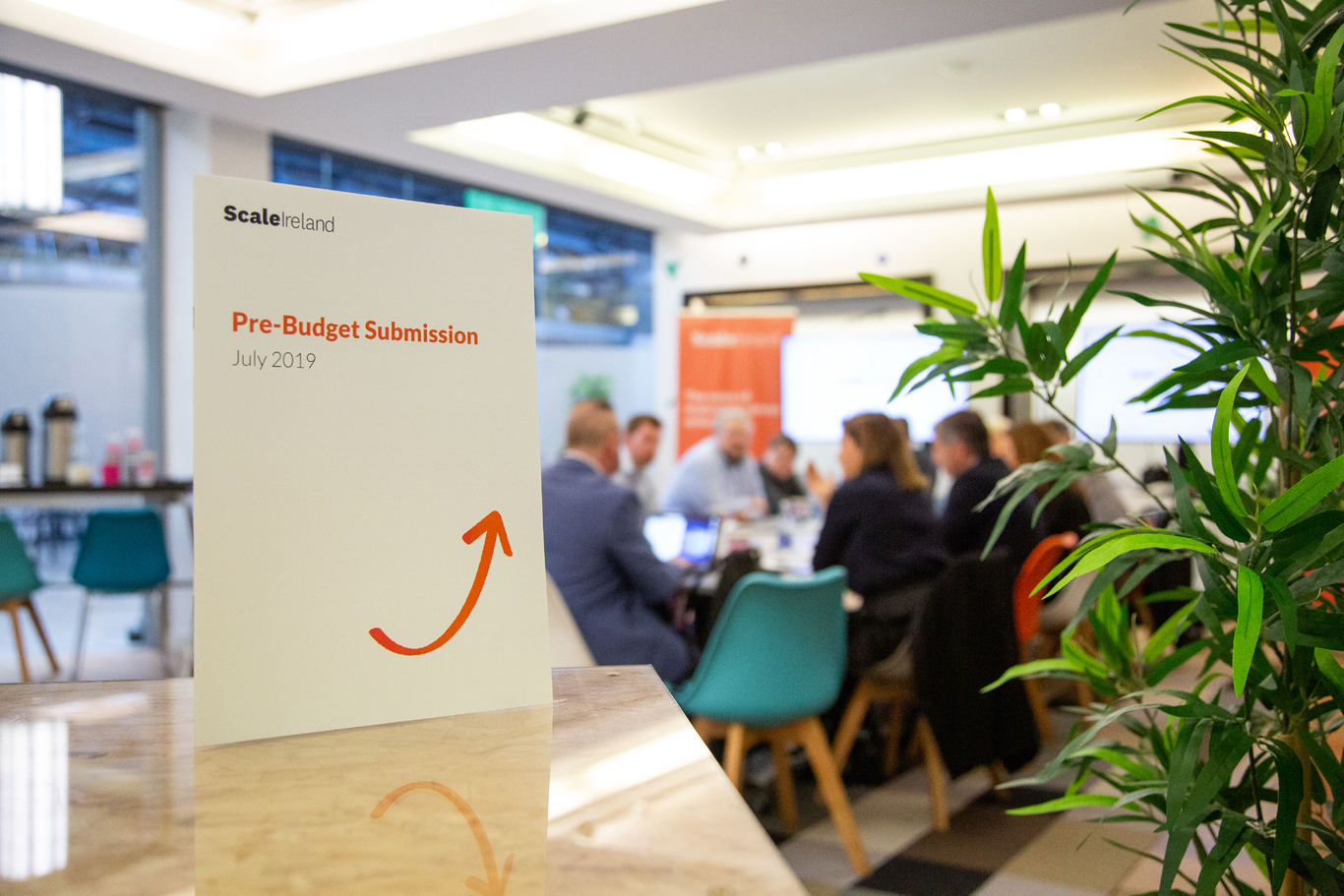Talent, capital and innovation: A new startup group is advocating for major policy change
Scale Ireland is lobbying for changes to tax structures and access to early-stage funding for startups.
A NEW INDEPENDENT group representing “innovation driven enterprises” wants to overhaul the startup landscape in Ireland by advocating for major policy changes.
The new initiative is chaired by Brian Caulfield, the entrepreneur and investor. Its steering group includes Elaine Coughlan, the managing partner of Atlantic Bridge, Conor Hanley, the chief executive of Fire1 and Patrick Walsh, the man behind Dogpatch Labs in Dublin.
Last month, in a pre-budget submission to the government, the group called for a revamp of some tax structures and increased access to early-stage funding for startups.
Aside from advocating for policy change, it also wants to be an intermediary between the government and businesses. The group is the latest attempt at unifying startup sector in Ireland.
Plans for Scale Ireland have been in the works for about a year. It’s being run by Liz McCarthy and Conor Gouldsbury, who are both involved with Dogpatch Labs, were it is based.
The group is funded by a number of figures from the startup sector and Google has also contributed.
“We’re seeing over-concentration of Foreign Direct Investment (FDI) which is a challenging issue for the country. There’s an over reliance on corporation tax receipts,” McCarthy said.
The group is aiming to “re-balance” the landscape in Ireland to leverage FDI to work alongside “innovation driven enterprises”.
She added that “we are seeing high-growth Irish startups really struggling to scale”.
Policy changes
The policy issues that are having the greatest impact on startups, according to McCarthy, are talent, capital, innovation and entrepreneurship.
In its pre-budget submission the group is calling for a revamp of the KEEP (Key Employee Engagement Programme) share options scheme, the Employee Investment Incentive Scheme (EIIS), to simplify the research and development tax credit and to improve capital gains tax.
“The KEEP scheme, which is there to help enable share options to be allocated, is really not working at all, it’s very difficult to administer,” she said.
In its pre-budget submission, Scale Ireland makes a number of recommendations including removing the €3 million ceiling on the value of granted options, changing conditions around remuneration and around qualifying employment – to include advisors and part-time staff.
On the capital side, EIIS is “simply not active as a vehicle for investment in high-risk entrepreneurial businesses”, McCarthy added.
For EIIS, the group recommended raising the amount of eligible relief from €150,000 to €1 million, permitting the offset of losses and applying the relief upfront for the first year.
“On the R&D side of things, we’re seeing that 70% of the R&D tax credit is going towards large corporates. There isn’t enough of it going to Irish companies that are innovating.”
The group recommended “simplifying the R&D tax credit” by enabling upfront payment of credit, fast-tracking applications for small companies and setting up a working group to help startups access the incentive.
With capital gains tax, she said, there isn’t a “material incentive if you want to drive high-growth”.
The submission recommends raising the lifetime cap on relief to €10 million, exploring a greater CGT incentive for entrepreneurs and to remove the requirement for entrepreneurs to own at least 5% of ordinary shares under CGT Entrepreneurs Relief.
Staged approach
According to Gouldsbury the group is “reasonably confident of being successful in the short, medium and long term” and “needs to sustain to have an impact”, he added.
At yesterday’s launch, the group noted that there has been strong engagement from government.
“Part of the reason why we’re so confident that there’s going to be impact is because the government simply has to make a move on these because we will lose our most ambitious skilled entrepreneurs,” McCarthy said.
Gouldsbury previously worked in government and was recruited by McCarthy for his knowledge of the landscape.
“I worked in government, policy and representation,” Gouldsbury said, adding that “what’s driving it (for him) is that sense of ‘come on Ireland’ and we see things that we think ‘we can do better’,” he said.
Caulfield, who chairs the group, has been advocating for policy change to support startups for several years.
It was the “quality of the people” he said, that convinced him to get involved in the project.
Scale Ireland has consciously kept a tight focus, Caulfield said, but down the line the group will expand to other areas of advocacy that have an impact on the startup ecosystem in Ireland.
Other areas its looking at are education, housing, which is “a huge challenge”, and issues around immigration such as the challenges faced by overseas workers coming to Ireland on a visa.
In the next 12 months, the approach needs to be evidence-based and data driven to maintain momentum, he added.
“People need to recognise that there isn’t going to be a big bang where everything changes. You need to educate people around this issue of incremental change,” he said.
“We are in a global war for talent, and the countries that have created the most open, welcoming and attractive environments for people to live and work and are going to be the countries that will succeed in the future.”
Get our Daily Briefing with the morning’s most important headlines for innovative Irish businesses.






